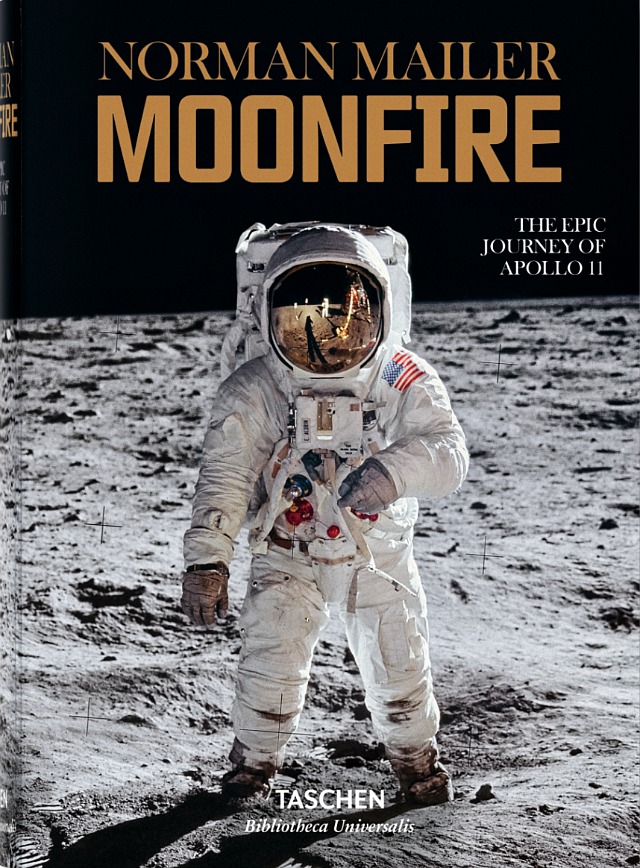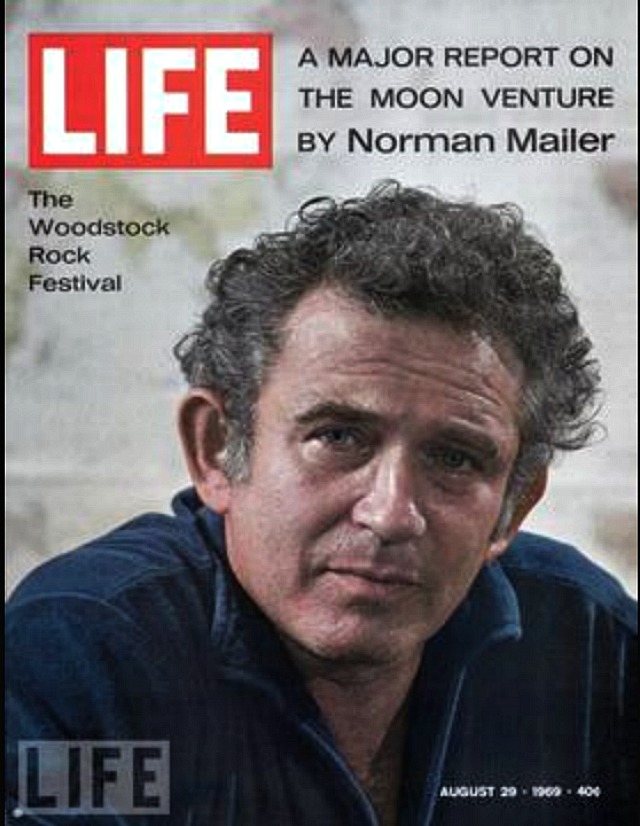It’s politically unsafe right now to write even somewhat favorably about Norman Mailer, who was regarded as a bit of a brutish chauvinist in his day. The Daughters of Maximilien Robespierre wouldn’t approve. Nonetheless Mailer did write an excellent book about the Apollo 11 moon mission and the dull NASA technocrats who made it all happen (“Of A Fire On The Moon“). And it does seem like a good idea to re-read it in preparation for Damian Chazelle‘s First Man (Universal, 10.12), which tells the story of astronaut Neil Armstrong (Ryan Gosling) and how, on 7.20.69, he became the first earthling to set food on the lunar surface.
If you ask me “Of A Fire On The Moon” is one of Mailer’s most personal and stirring works. One should try to appreciate it as an epic piece of writing that doesn’t necessarily reflect upon early ’70s firebrand feminists. It’s about much bigger fish.

Last weekend I was poking around inside the Taschen store near the Farmer’s Market, and I happened to notice an abridged, small-scaled version of Mailer’s book, called “Moonfire“, on sale for a mere $20. When Taschen did the first publishing nine years ago they were selling a huge coffee-table version that sold for $1800.
The “Moonfire” copy: “One of the greatest writers of the 20th century captures the definitive event of modern science…discover the men, the machinery, and the sheer thrill of the lunar mission with Norman Mailer’s dazzling account of the Apollo 11 adventure, illustrated by hundreds of photographs,” blah blah.
The original book starts with a riff about the death of Ernest Hemingway, which right away tells you Mailer is not exactly levitating with admiration for each and every aspect of the NASA space program, or certainly the men who worked for the agency.
And yet Mailer gradually admits to an admiration for NASA’s WASP efficiency in having gotten a very difficult job done, which he sees as a kind of ultimate vindication of the white-guy jacket-and-tie workplace culture that otherwise, Mailer felt, had added little in terms of genuine beauty or wonder to life on this planet.
He also complained a lot about NASA’s closed and austere society in which “outsiders were distrusted and held at arm’s length with a bland and faceless courtesy that betrays nothing,” in the words of an Amazon reviewer.
Neil Armstrong, the first human being to set foot on the moon, wasn’t much for answering questions or being even somewhat interesting as a conversationalist. I loved Mailer’s equating Armstrong’s profound disinterest in questions to a cow’s irritation with flies landing on its back while grazing in a country field, and how Armstrong’s evasiveness was analogous to a cow’s tail rearing up and swatting flies on its rear haunches…flick…flick….flick.
I remember also that Mailer was asked on a TV talk show about Apollo astronaut Frank Borman having said that Of a Fire on the Moon wasn’t much of a book, and Mailer replying that “it would be easier for a camel to pass through the eye of a needle than for a new idea to find its way into Frank Borman’s head.”










